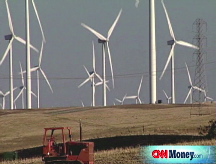 Best Buy, like many other stores, has a public "price matching" policy. But HD Guru reports that according to internal docs, personnel are trained to deny price-matches and even paid bonuses for shutting them down.
Best Buy, like many other stores, has a public "price matching" policy. But HD Guru reports that according to internal docs, personnel are trained to deny price-matches and even paid bonuses for shutting them down.
This all comes out of a lawsuit that was just granted class action status. Internal documents, plus depositions from past and current Best Buy employees reveal just how evil Best Buy is. A price match is when, say, Circuit City advertised a Sharp HDTV for cheaper than Best Buy, Best Buy's public policy is to match that price.
But Best Buy actually trains employees in New York how to deny legitimate price match requests, and the average Best Buy store denies 100 price matches a week. You even get paid bonuses based on how many price matches you deny!
Here's how it works, according to Phil Britton, a member of Best Buy's Competitive Strategies Group:
What is the first thing we do when a customer comes in to our humble box brandishing a competitor's ad asking for a price match? We attempt to build a case against the price match. (Trust me, I've done it too). Let's walk through the "Refused Price Match Greatest Hits:"Not same model? Not in stock at the competitor? Do we have free widget with purchase? Is it from a warehouse club (they have membership fees, you know)? Limited Quantities? That competitor is across town? We've got financing! Is it an internet price? It's below cost!….."
If you live in NY state, and you've been screwed by Best Buy's anti-price matching, HD Guru has further info on the attorney to contact so you can take a piece out of Best Buy. What a bunch of scum.
Update: Giz reader Jake reveals how they scam you on model numbers to avoid price matching:
Example: A few months ago my wife and I were looking at a Frigidaire Washer. The model we were interested was the ATF8000FS. At Best Buy, we found the washer there however it was displayed as the ATF8000FSL. At first I figured "Oh this must be some variation on the original model number, like how manufacturers sometimes add a letter to the end of the model to indicate the product color." Anyways, to make a long story short, this ATF8000FSL was not available from the manufacturer.The "L" was added on by Best Buy in order for them to skirt around price matching. This is so no one can come to Best Buy and claim to have found a lower price of this product because no one else sells the product under the model number ATF8000FSL. It's ATF8000FS everywhere else. Best Buy will tell people that its simply a different product, so therefore, no price matching. Even on the manufacturer's sticker on the washer, it said ATF8000FS, as it was supposed to. Upon further investigation I could see that Best Buy's internal computers even listed the model as ATF8000FSL.
'IT' 카테고리의 다른 글
| What iPhone Has Needed All Along is Coming: Sparkle, A 3D Virtual World (0) | 2009.03.24 |
|---|---|
| Nokia 7205 Intrigue Looks Like an Actually Decent Flip Phone (0) | 2009.03.24 |
| "New" 17-inch iMac is Actually the "old" 17-inch iMac (0) | 2009.03.24 |
| Canada's Suncor to buy Petro-Canada (0) | 2009.03.24 |
| How E-Books Make (A Lot) Of Cents (0) | 2009.03.24 |






Comment On This Story